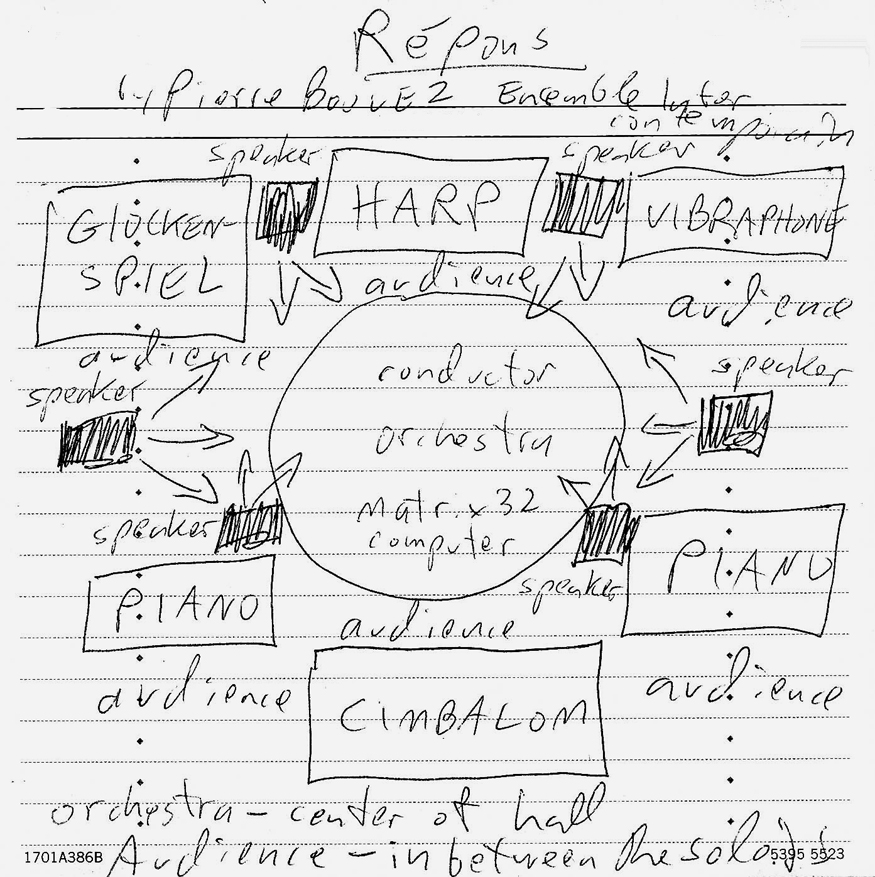
Pierre Boulez, Répons, always loved it, always will. I don't much care why he thought he wrote it: some kind of intensely structuralist view of sound, probably, with some mediation through the pro-Cultural Revolution politics he was into.
When it premiered at the Proms I stayed up and listened to it (I wasn't allowed to go—too young!). I used headphones and taped it, and the tape stuck around for a long time.
About 6 minutes in (6 minutes and 25 seconds to be precise on my recording) the percussive instruments come in. They surround the smoother instruments (brass, strings) in a square and they are processed through various delays and filters that nowadays seem super easy to organize but then required intense programming skills.
The deal was that the percussive soloists also surround the auditorium audience. Oh man I wanted to be there.
I now associate the sound of their entry with speculative realism: the sound of a vaster world bursting in to the human, or is it the reverse, the sound of a trapdoor opening in a plane, or the plane itself disappearing so we find ourselves in the wide blue sky? A terrifying, wonderful sound, the Kantian sublime of inner freedom giving way to a speculative sublime of disturbing intimacy. The sound of the end of the world but not an apocalypse, not a predictable conclusion. The sound of something beginning, the sound of discovering yourself inside of something.
Sure: at the time Boulez probably thought (and his audience too) that this was the sound of modern human technology and so on, Gesellschaft impinging on Gemeinschaft, bla bla bla. And the idea of a dialogue between equal partners, some kind of dialectical play between organic and electronic.
The piece is much more that that. It's the sound of real entities appearing to humans. But as I've been arguing, real nonhuman entities appear to humans at first as blips on their monitors. But they are not those blips.
The sound of a higher-dimensional configuration space impinging on extreme Western music (total serialism). The sound of hyperobjects. The sound of a non-music. Listen to the very end: the sound echoes and reverberates, repeating glissandos, then over. No fade out. That end is still unspeakable for me.
The sound of a music I was waiting to hear until Jarrod Fowler showed up...Robert Cahen captures it quite well in this deceptively simple film, visualizing the “human sounds” as a traditional orchestral ensemble and the percussive sounds as humans mediated by a luminous ocean:
No comments:
Post a Comment